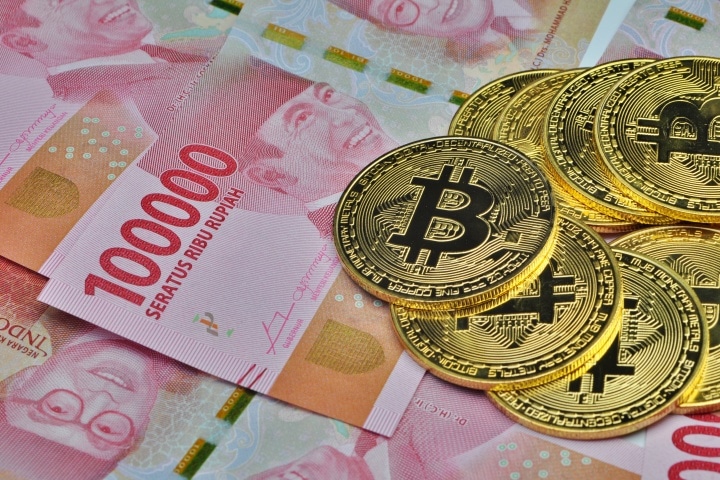Indonesia Bitcoin ban – Ulema Rules Bitcoin Haram
Since Bitcoin’s inception date of January 3rd, 2009, Muslims around the world have been asking the question, is Bitcoin halal? And in the early days of Bitcoin, more times than not, many scholars gave a blanket ruling that Bitcoin was haram and cited their reasons as to why.
Now, in 2021, some 12 years later, we have come a long way in our understanding of Bitcoin and our scholars have also progressed in their understanding of not only Bitcoin but cryptocurrency as a whole.
So when the recent news came out that Indonesia’s National Ulema Council issued a fatwa saying that Bitcoin and all cryptocurrency is haram, that surprised not only Indonesians, but many Muslims worldwide as Indonesians have not only been steadily increasing in cryptocurrency adoption, but the Indonesian government has also signalled its interest in providing cryptocurrency regulation to make cryptocurrency trading safer for Indonesians.
Let’s discuss the Indonesia Bitcoin ban and what this means for the future of cryptocurrency in Indonesia.
Bitcoin in Indonesia
Indonesia, the largest Muslim country in the world, has seen steady adoption of crypto acquisition and trading with crypto transactions amounting to 370 trillion rupiah (around$26 billion) in the first five months of 2021 alone. Make no mistake about it, Indonesians are serious about crypto.
In fact, we are now seeing that Indonesians have been investing more in cryptocurrency than they have in the stock market and the government has taken notice.
Indonesia’s Minister of Trade, Jerry Samuaga, held an interview with Metro TV News discussing the government’s initiative to create a Crypto Bourse to bring more regulation to cryptocurrency in Indonesia making it safer for Indonesians to transact with crypto.
So how is it that the government is moving forward with crypto adoption, yet the country’s National Ulema Council has completely opposite opinions declaring Bitcoin and all cryptocurrency haram?
Indonesia Bitcoin ban
In 2017 the Central Bank of Indonesia, Bank Indonesia (BI) banned using virtual currency in payment system activities. The message was clear, the Central Bank of Indonesia does not see Bitcoin as legal tender and aims to protect the country’s economy from misuse of virtual currencies.
Still, the government did not ban owning and/or trading cryptocurrencies. It only banned crypto being used in payment systems and does not recognize Bitcoin or virtual currencies as legal tender.
Four years later, in 2021, the Minister of Trade, Jerry Samuaga, has also continued to clarify this and has stated that Bitcoin is not seen as a currency or legal tender in Indonesia, but rather is classified as an asset.
And what of the country’s religious scholars?
Even with the progress in the understanding of cryptocurrencies among scholars worldwide with scholars beginning to have a more nuanced opinion on Bitcoin, crypto, and virtual currencies, the National Ulema Council in Indonesia still holds the opinion that Bitcoin and all cryptocurrencies are haram as they believe that “cryptocurrencies as commodities or digital assets are unlawful for trading because they have elements of uncertainty, wagering and harm.”
According to the National Ulema Council, Bitcoin and cryptocurrency are also seen as haram because:
- Trading them is likened to gambling
- Cryptocurrencies are not physical, tangible assets
- Cryptocurrency values are volatile and fluctuate greatly
However, Asrorun Niam Sholeh, head of religious decrees for the National Ulema Council, made it clear that “if cryptocurrency as a commodity or digital asset can abide by Shariah tenets and can show a clear benefit, then it can be traded.”
5 benefits of cryptocurrency
So are there any benefits with cryptocurrency? Yes, we can list at least five.
1) Easy transactions
Cryptocurrencies such as DASH and Cardano make it easy to conduct transactions such as remittances for extremely low costs.
This can prove most beneficial for those living in countries whose currencies are not as strong as the British Pound Sterling (GBP), US Dollar (USD), Singaporean Dollar (SGD), Brunei Dollar (BND), Jordan Dinar (JOD), Omani Reil (OMR) and others as utilizing cryptocurrencies directly between parties could help save greatly on remittance fees by cutting out expensive third-party vendors.
2) Preservation of wealth
Bitcoin, in particular, is seen as a store of value to hedge against the inflation of fiat currencies worldwide and preservation of wealth is one of the five objectives of the Shariah.
3) Transparency
Cryptocurrencies can run on public blockchains for all to see providing much needed transparency for financial structures such as stock markets and sukuks. I foresee a future where stocks will be represented as digital assets on a blockchain as a way to deliver better transparency for its investors and to prevent the trading volume from exceeding outstanding shares as can happen today.
4) Fraud prevention
Cryptocurrencies such a VeChain provide accountability for goods being produced and traded since they are tied to a blockchain that allows the consumer to validate the authenticity of a product through the entire supply chain of its production.
Utilizing cryptocurrency for fraud prevention can be highly beneficial as it can help prevent counterfeit products from entering the marketplace and harming people while also allowing the tracking of food products to make sure that they are halal.
5) Increase in economic equity
Over the years we have only seen an increase in finance and e-commerce products grow online and access to these markets can be near impossible for those who are unbanked creating wealth inequality worldwide. However, it has been reported that there will come a time when there will be more people that have smartphones than bank accounts.
Smartphones along with cryptocurrency serve as a gateway for many people to now enter the growing finance and e-commerce markets providing economic equity, or at least economic inclusion, to those who are unbanked around the world, particularly in Asian, Middle Eastern, and African countries, allowing them the possibility to participate in the market at low cost in a manner that would have been impossible years ago.
These are five examples, and there are more, of how cryptocurrency can be of benefit to humanity while also being compliant with the Shariah.
The future of cryptocurrency in Indonesia
While fatwas are not necessarily binding, Muslims generally view them with importance and Indonesian Muslims are no different. Do I believe that the ulema of Indonesia will change their view on Bitcoin and cryptocurrency? Yes, I believe they will.
Cryptocurrency is the natural evolution of money, but we must still remember that cryptocurrency is a new technology that is not adopted nor used by the masses worldwide for everyday use. The number of people that are active cryptocurrency users as of 2020 was around 100 million people in a world of billions. This is still small.
And as for how much money all cryptocurrency accounts for worldwide, well, as of the time of when this article is published, that only sits at a mere 7%.
In other words, cryptocurrency is still not mainstream, but in time, as better infrastructure is built throughout cryptocurrency markets focusing on ease of use and government compliance; where we will see better security, faster transaction times, interoperability between blockchains, a better balance between privacy and transparency, better user interface (UI) and user experience (UX) design, along with many countries implementing their own central bank digital currencies, I do believe that we will see more stability in crypto markets, easier and more beneficial use of the technology, and more acceptance by governments and scholars worldwide and this includes Indonesia.
Indonesia is the largest Muslim country in the world with a people naturally inclined to business and technology and who, by and large, hold their Islam with importance. I believe they will find a way to integrate cryptocurrency within their country in a beneficial way while still upholding their Islam.
This is already taking place in Indonesia as we see it in projects like Cardanesia, a Cardano staking pool earning halal yield from Cardano’s proof of stake protocol. Cardanesia’s participation in proof of stake block validation is seen as environmentally friendly and as a way of giving back, some of the income they earn from staking is given as charity to Rumah Zakat.
Insha’Allah I look forward to seeing the opinion of scholars change and look forward to having them participate in the formation of halal financial products, security, and IT infrastructure based on cryptocurrency, blockchain, and digital currencies in a manner that is not only beneficial for the government, but also for the everyday user.
I do believe that this is possible in Indonesia, and in the end, Allah knows best.
PLEASE KINDLY SHARE THIS ARTICLE IF YOU’VE FOUND BENEFIT IN IT



